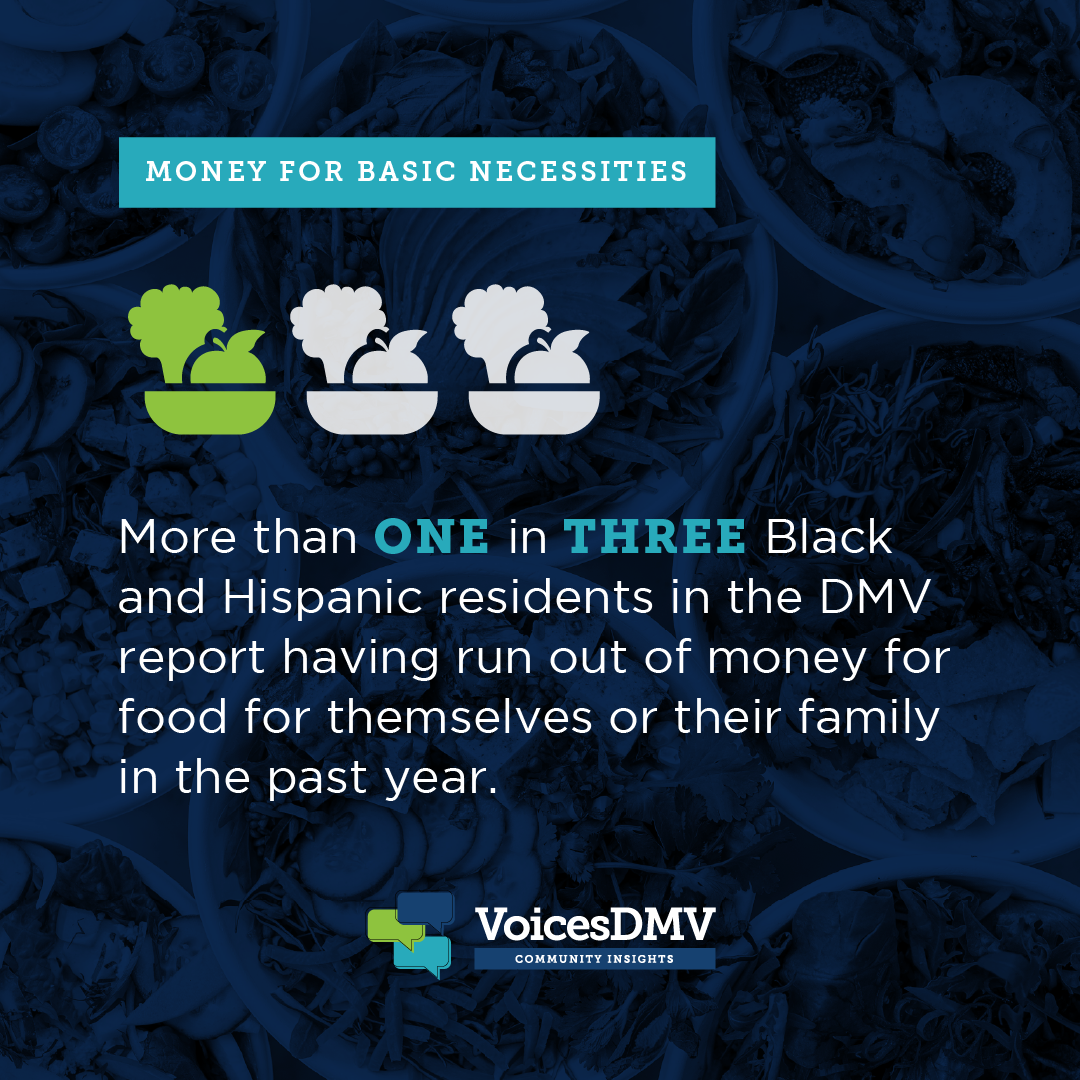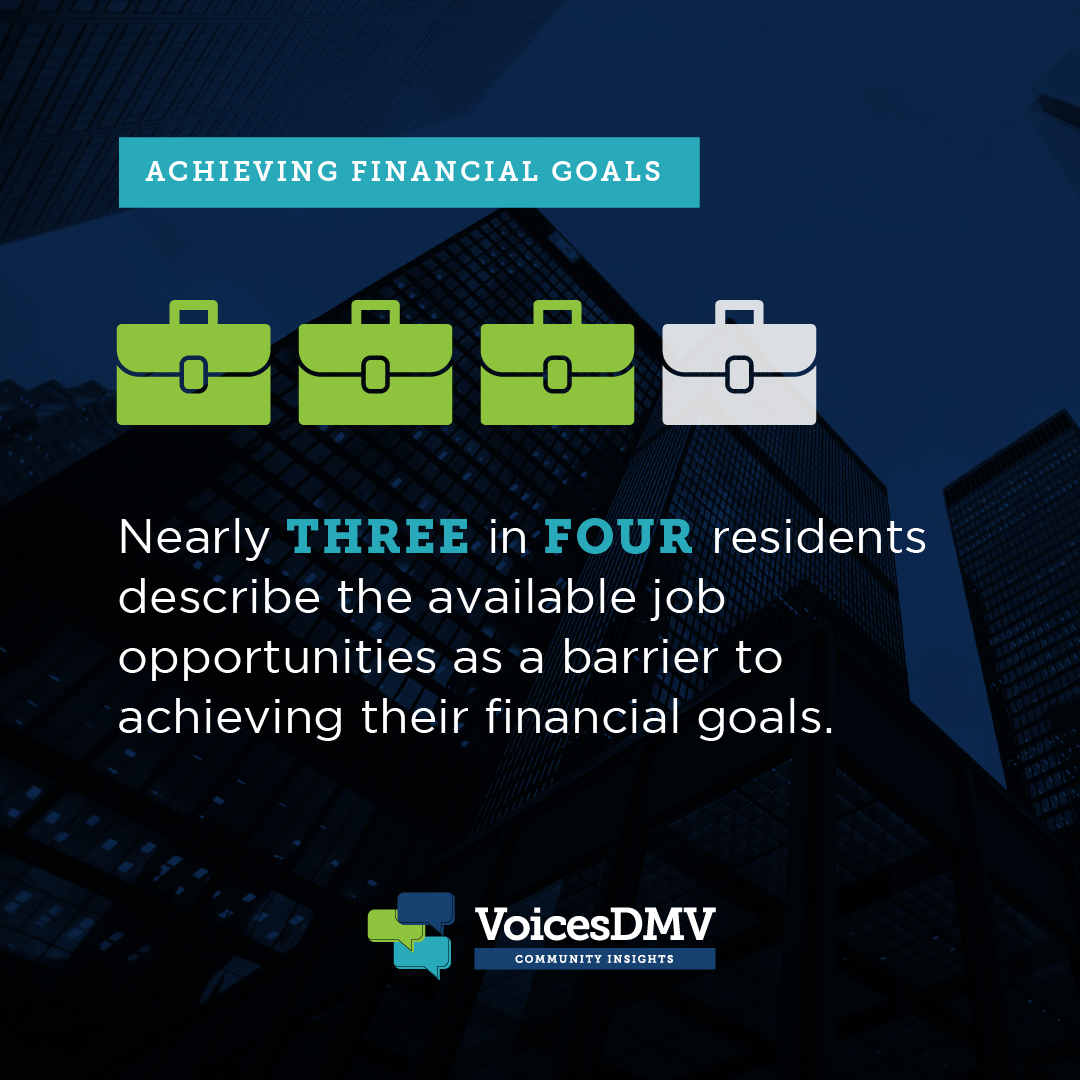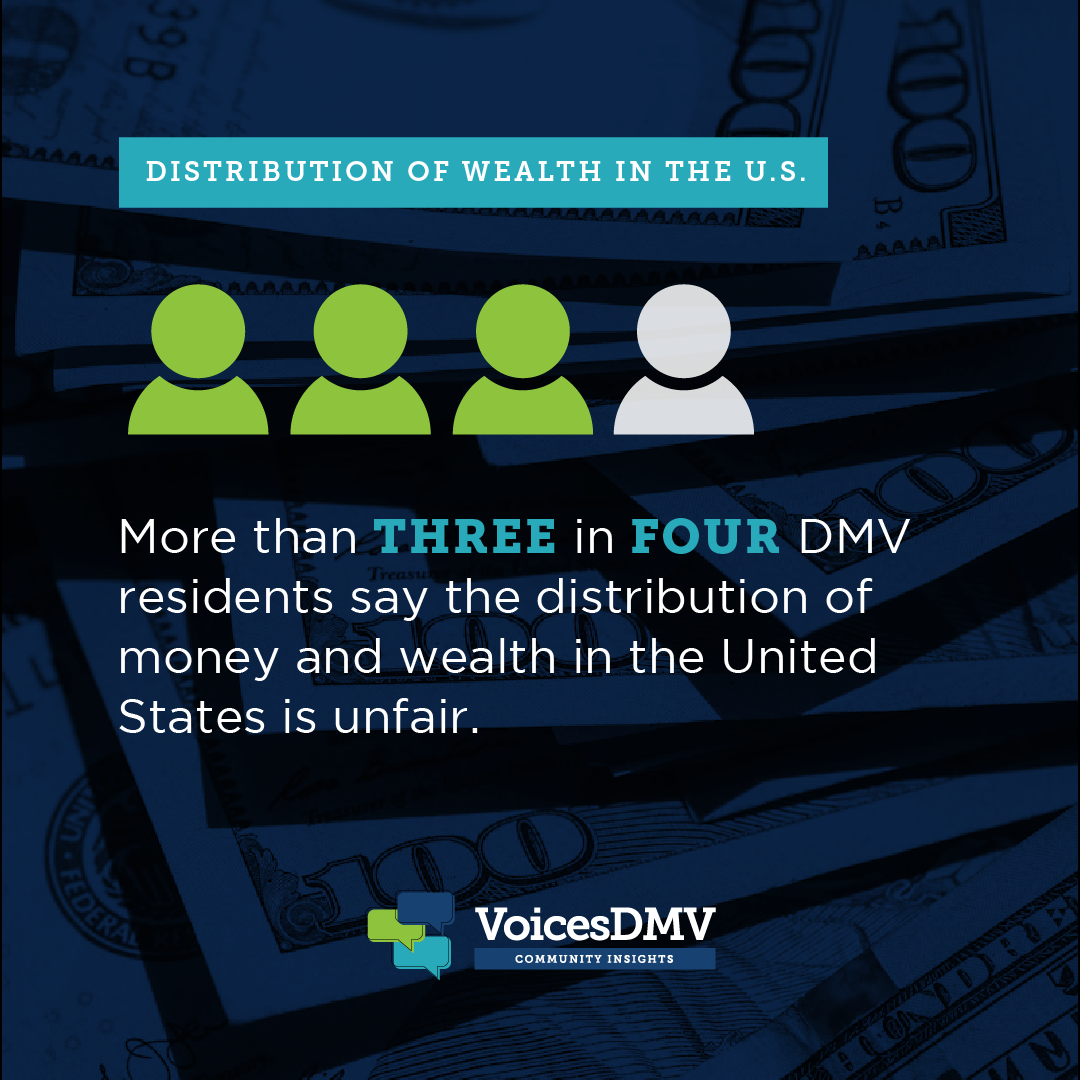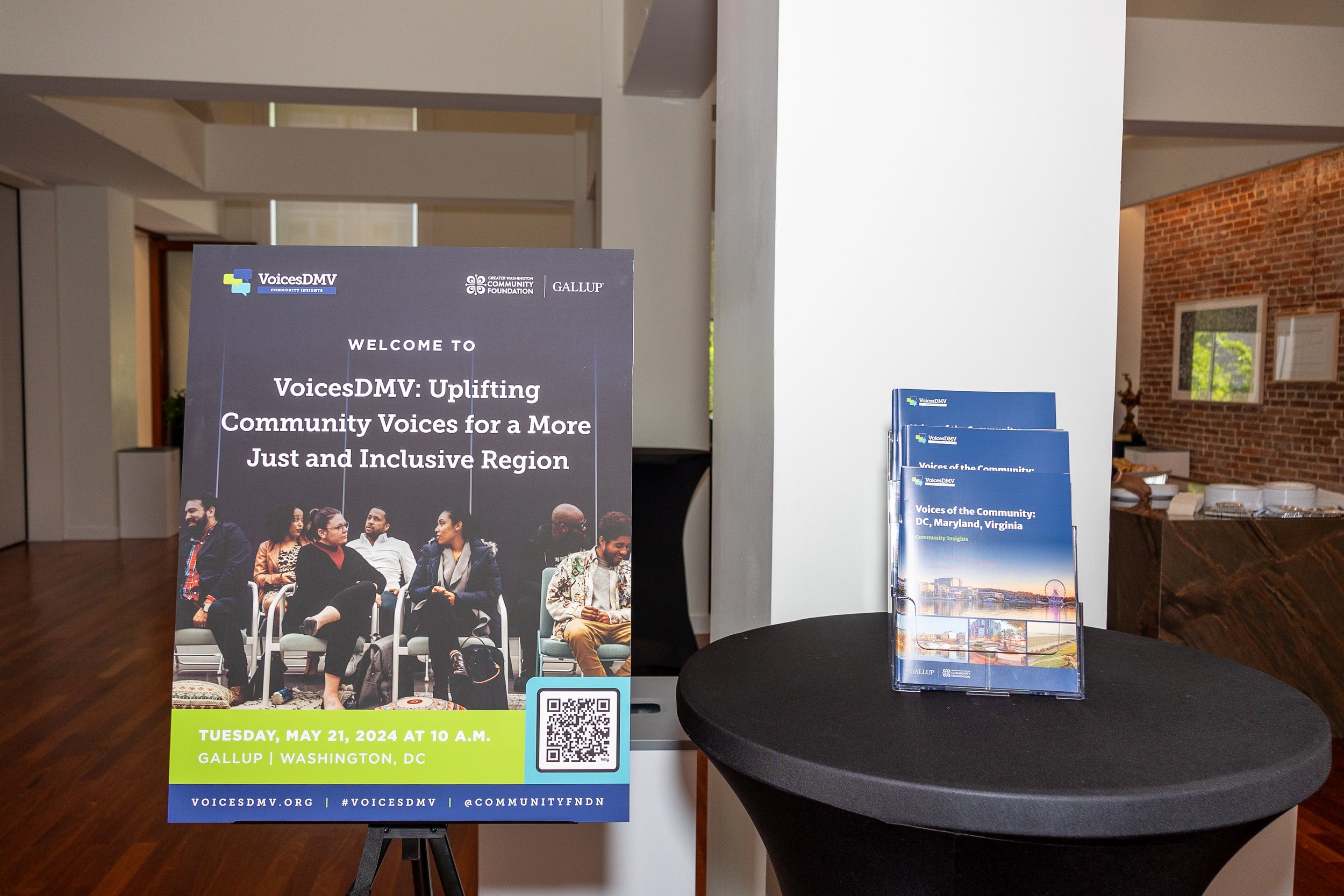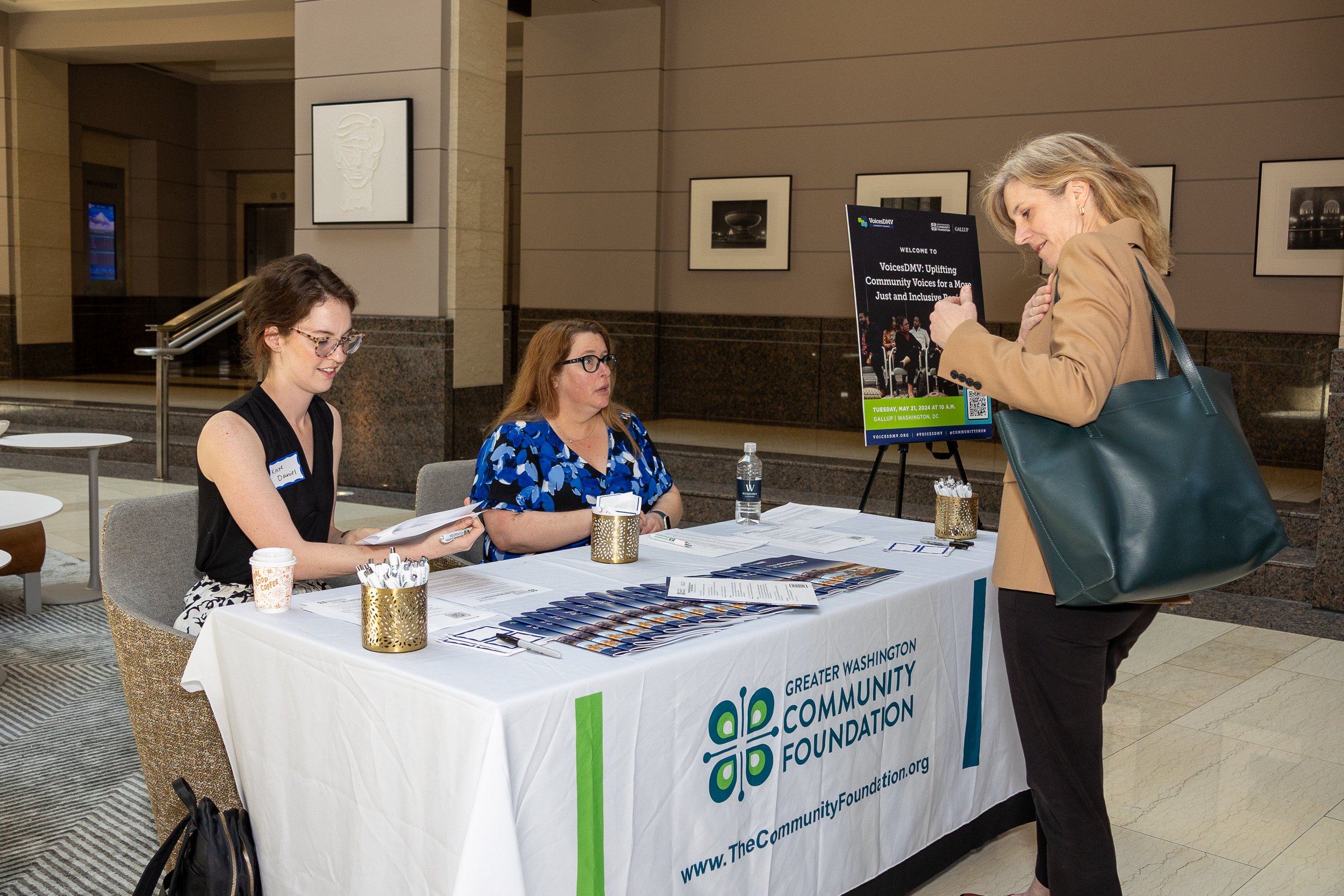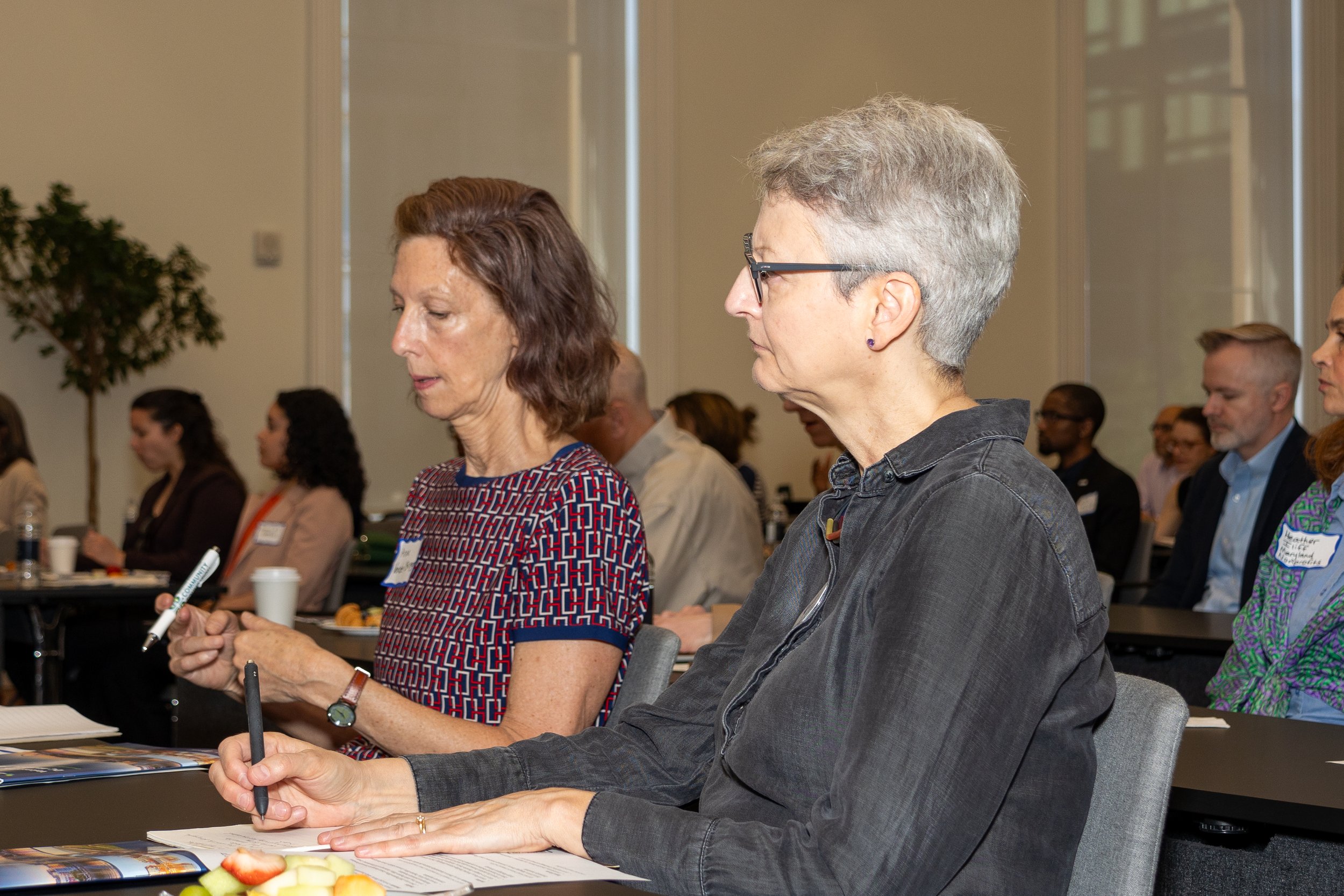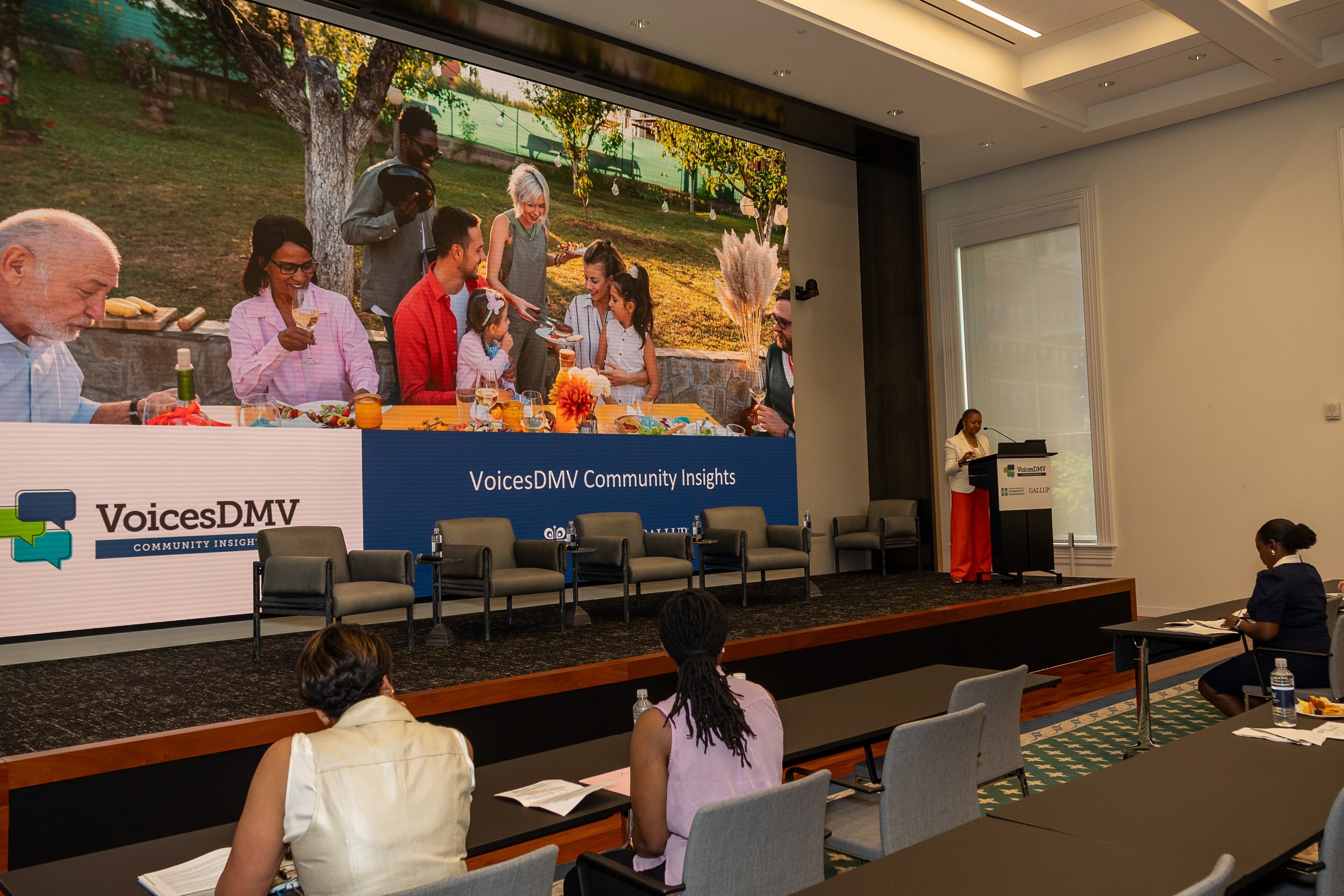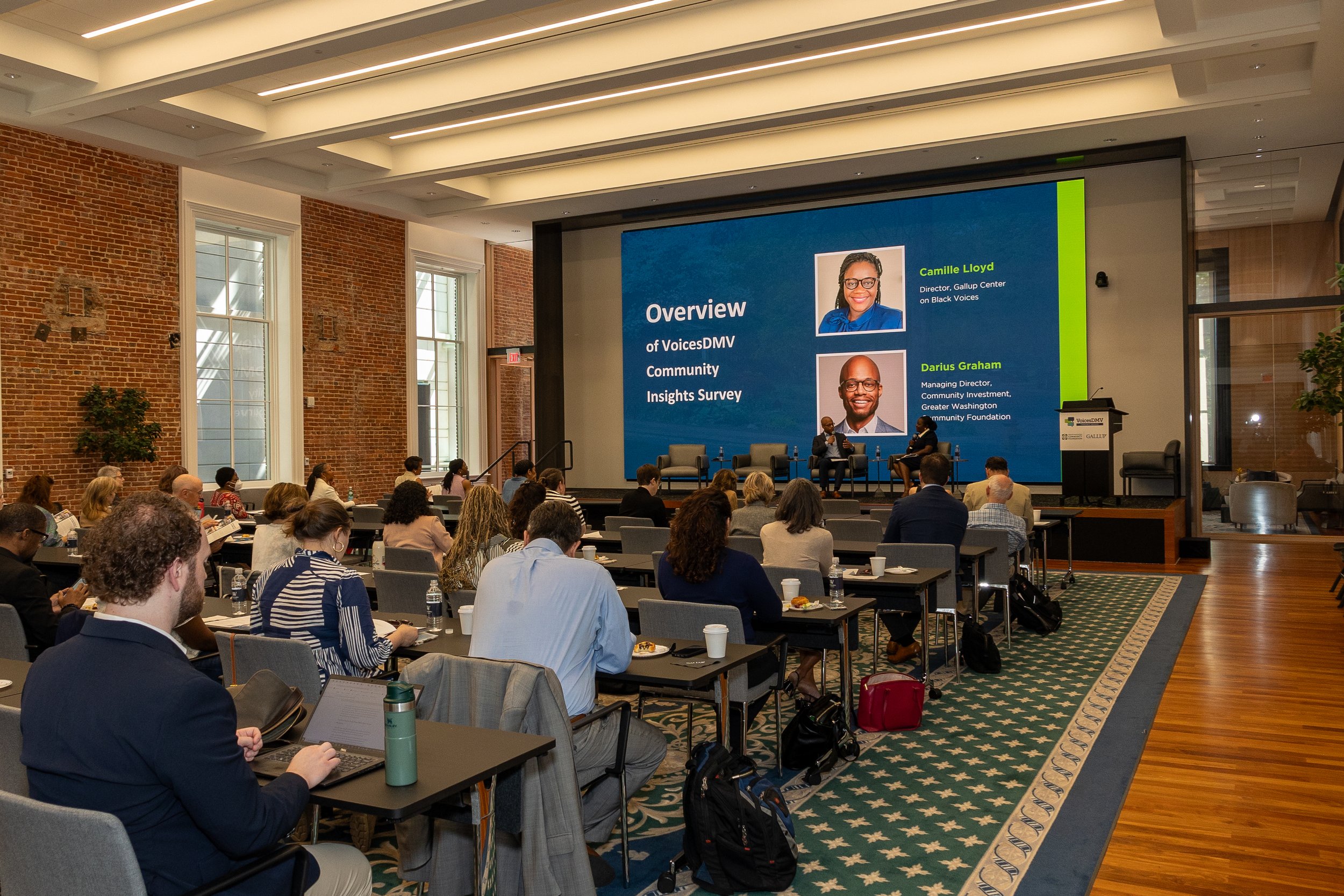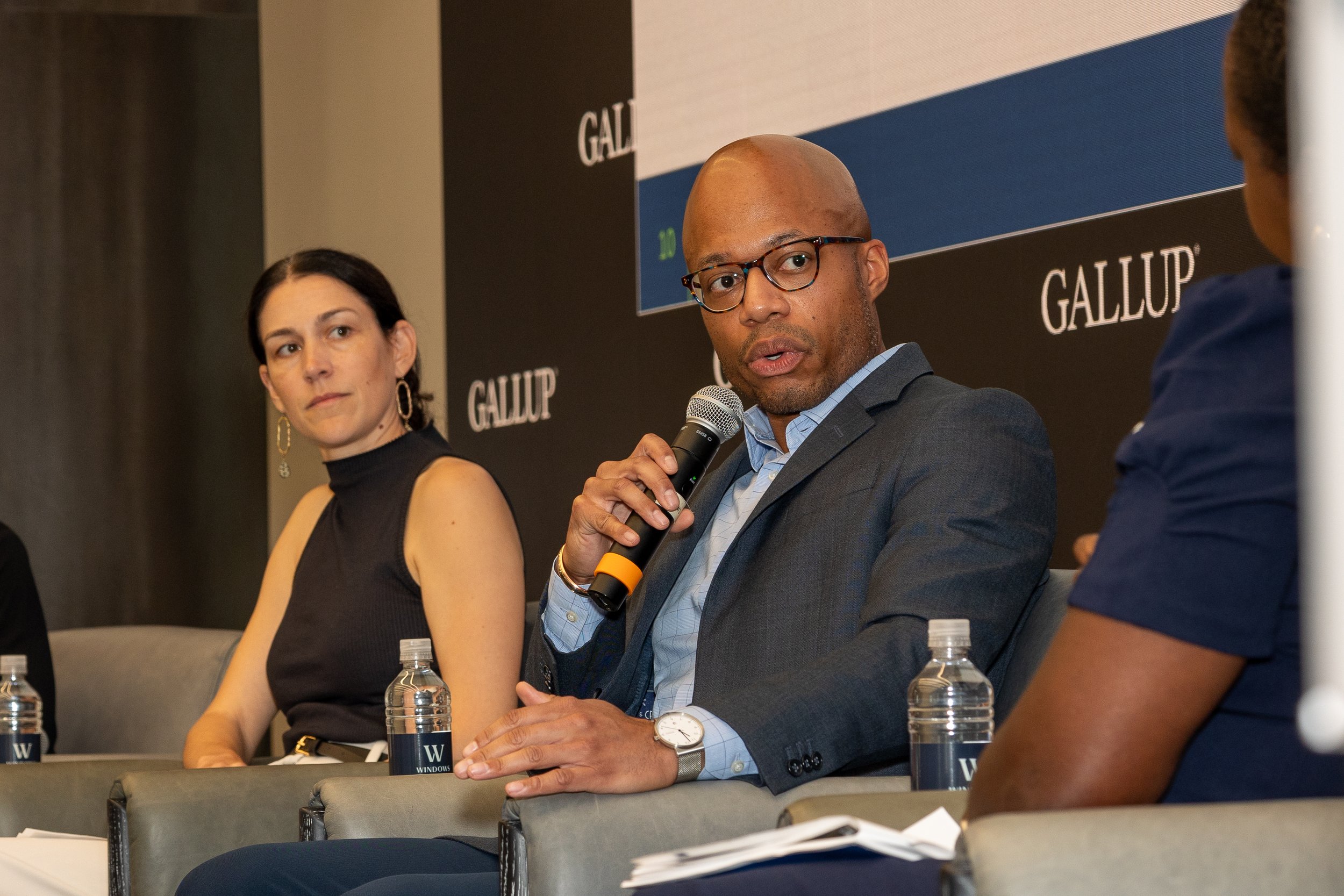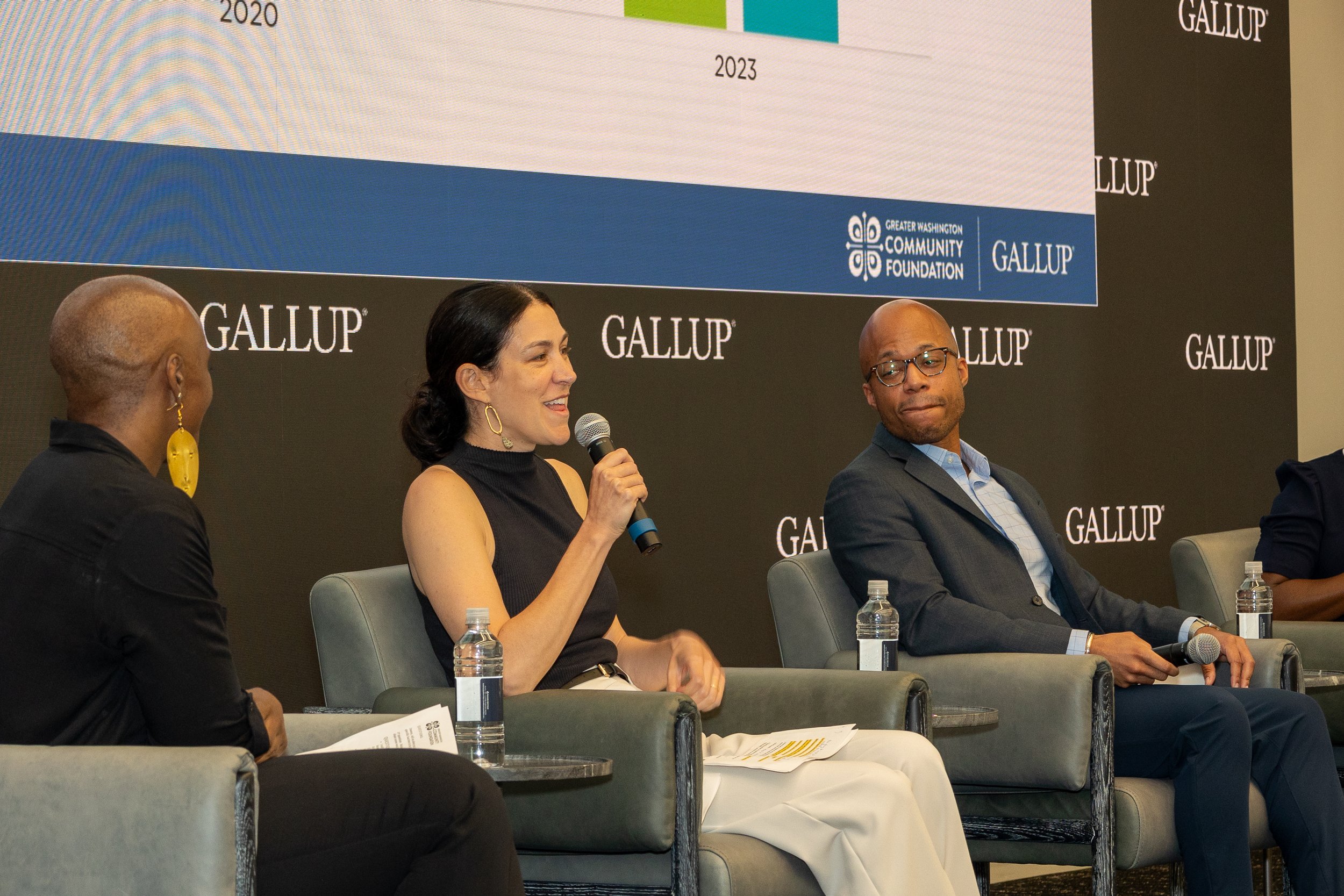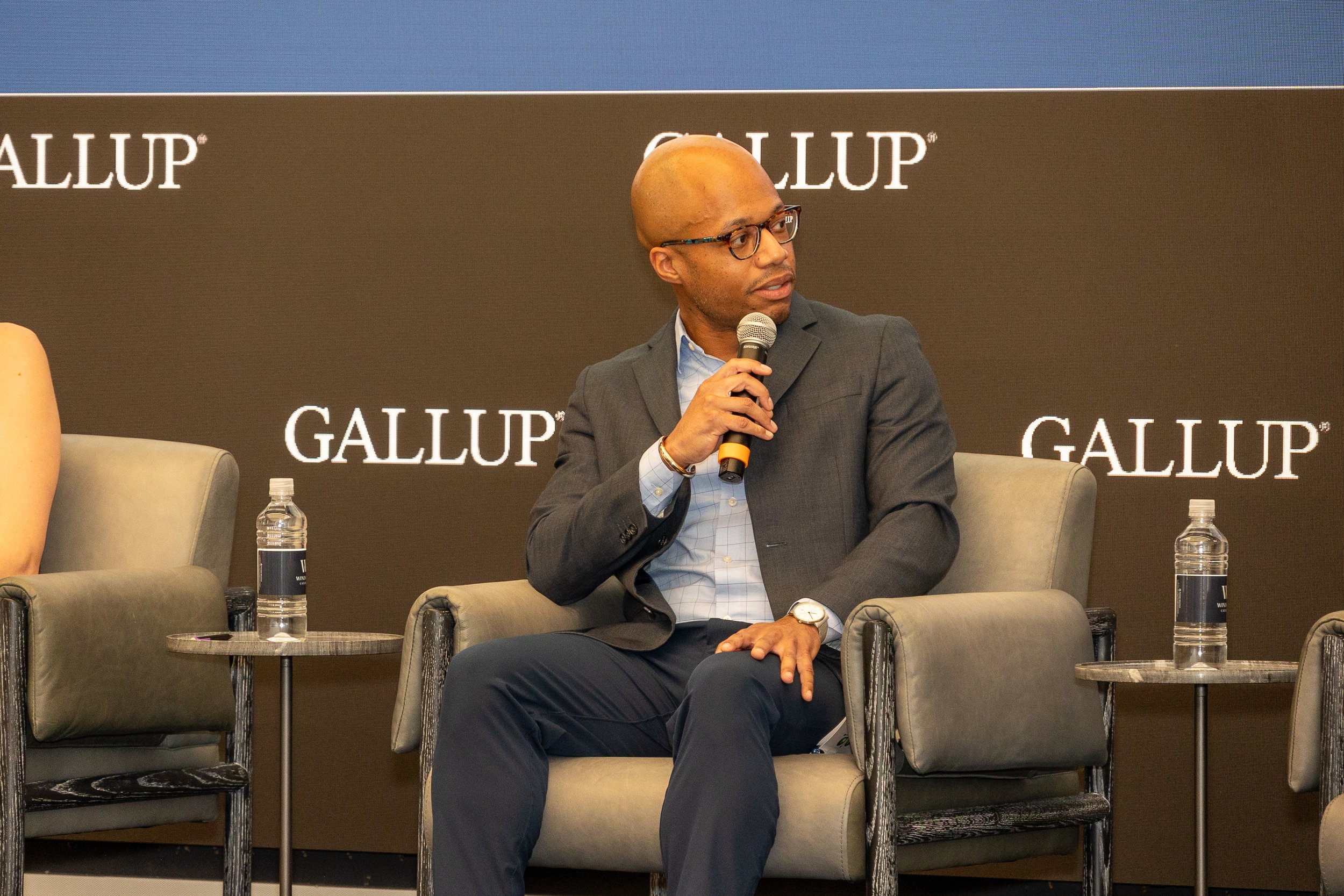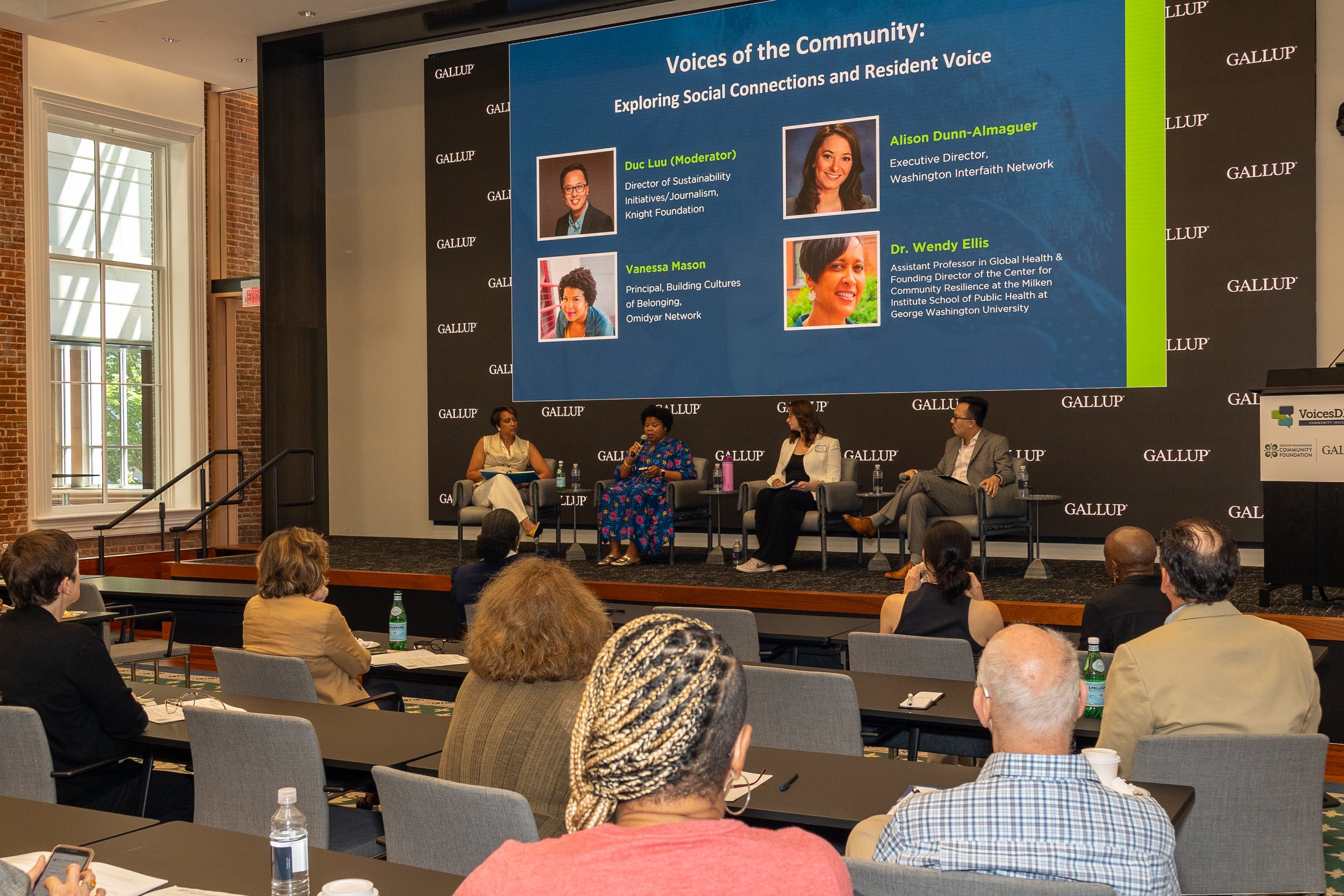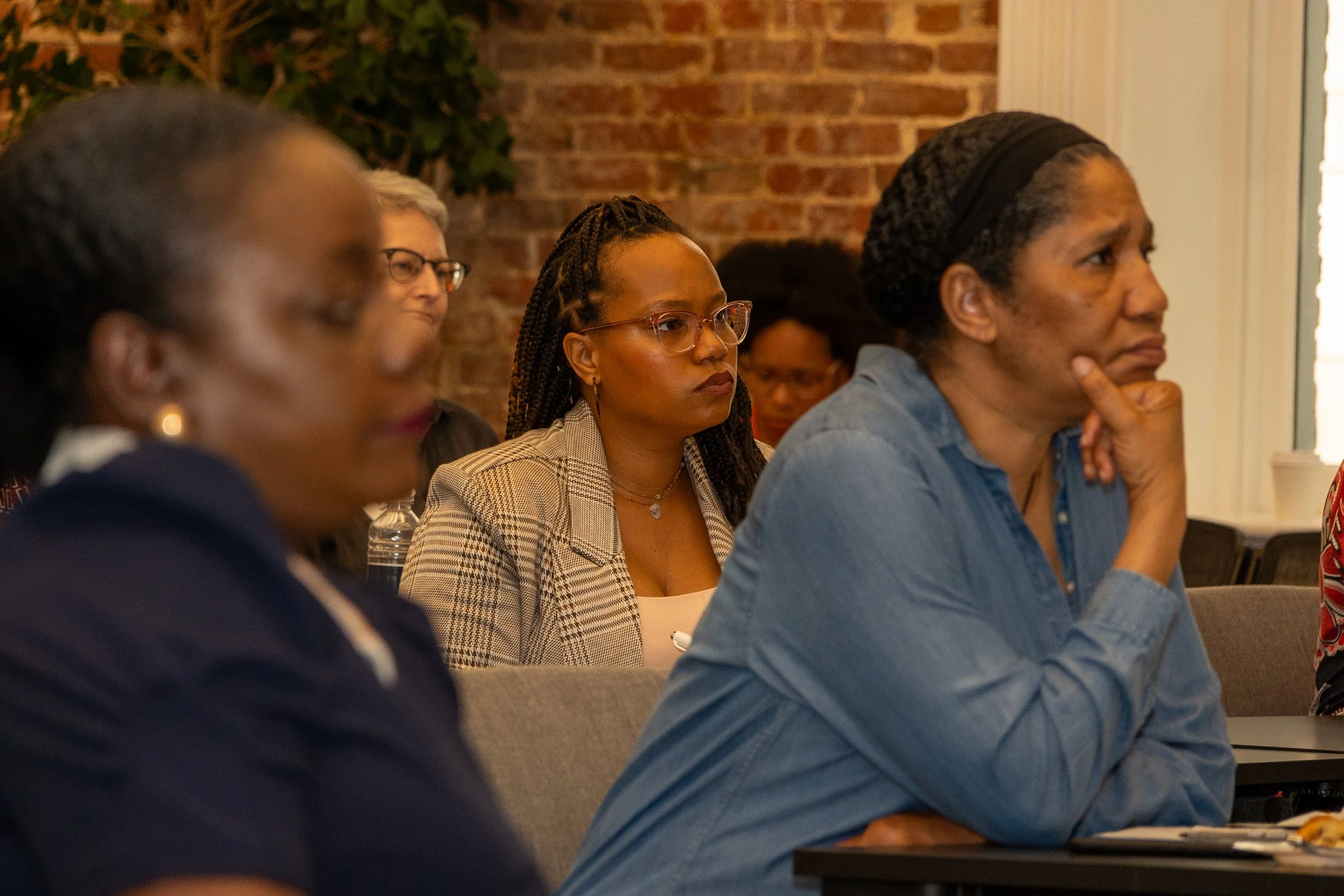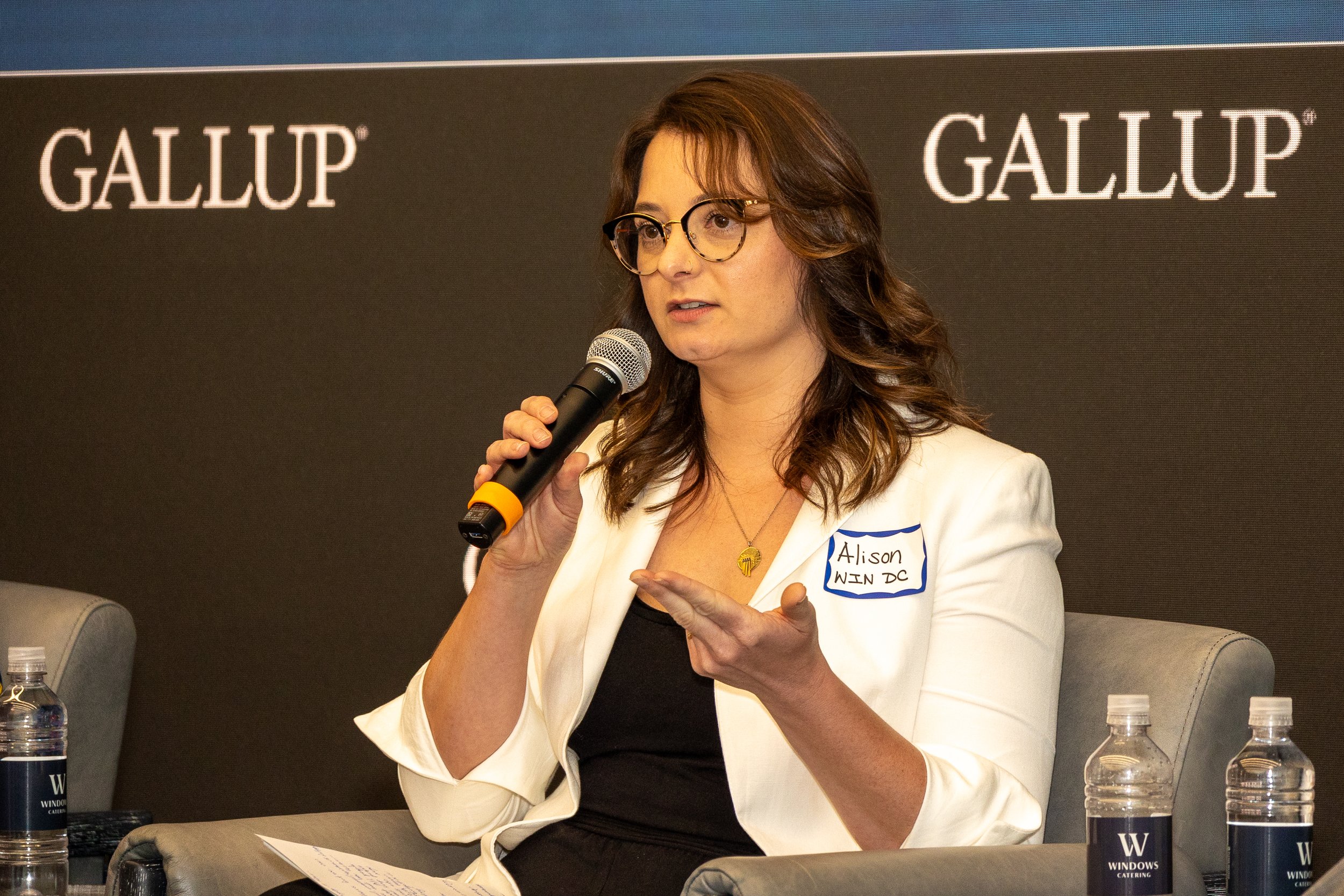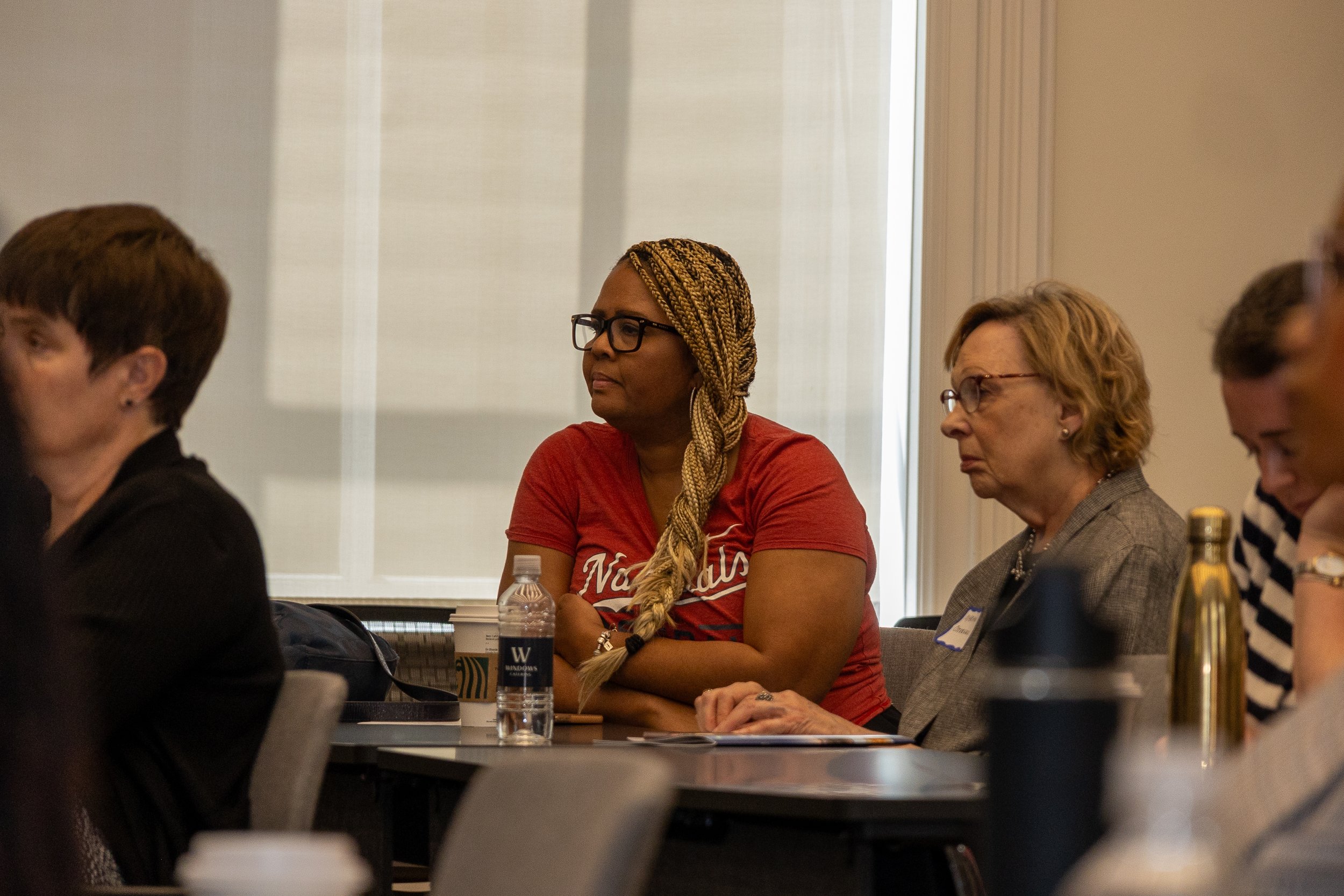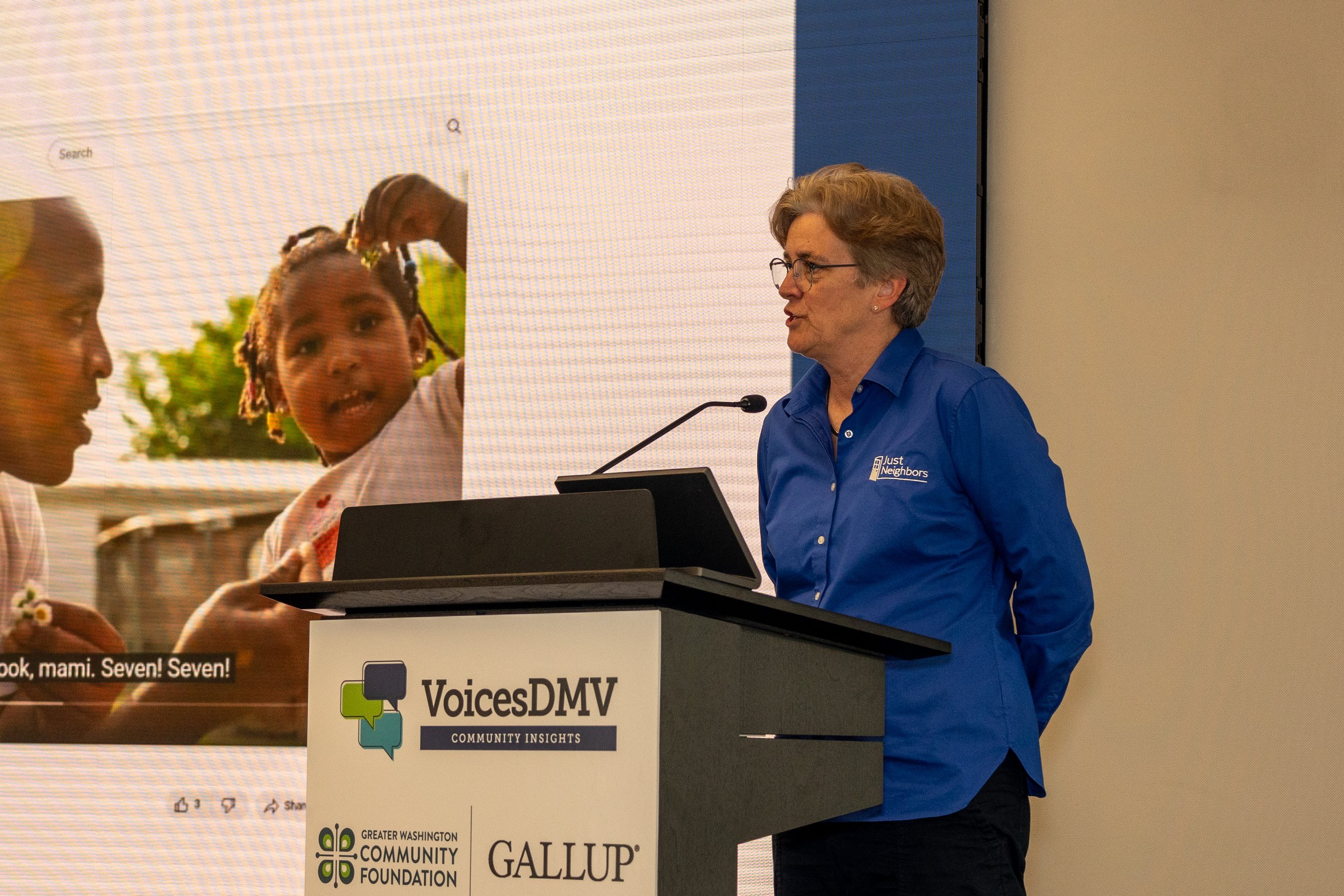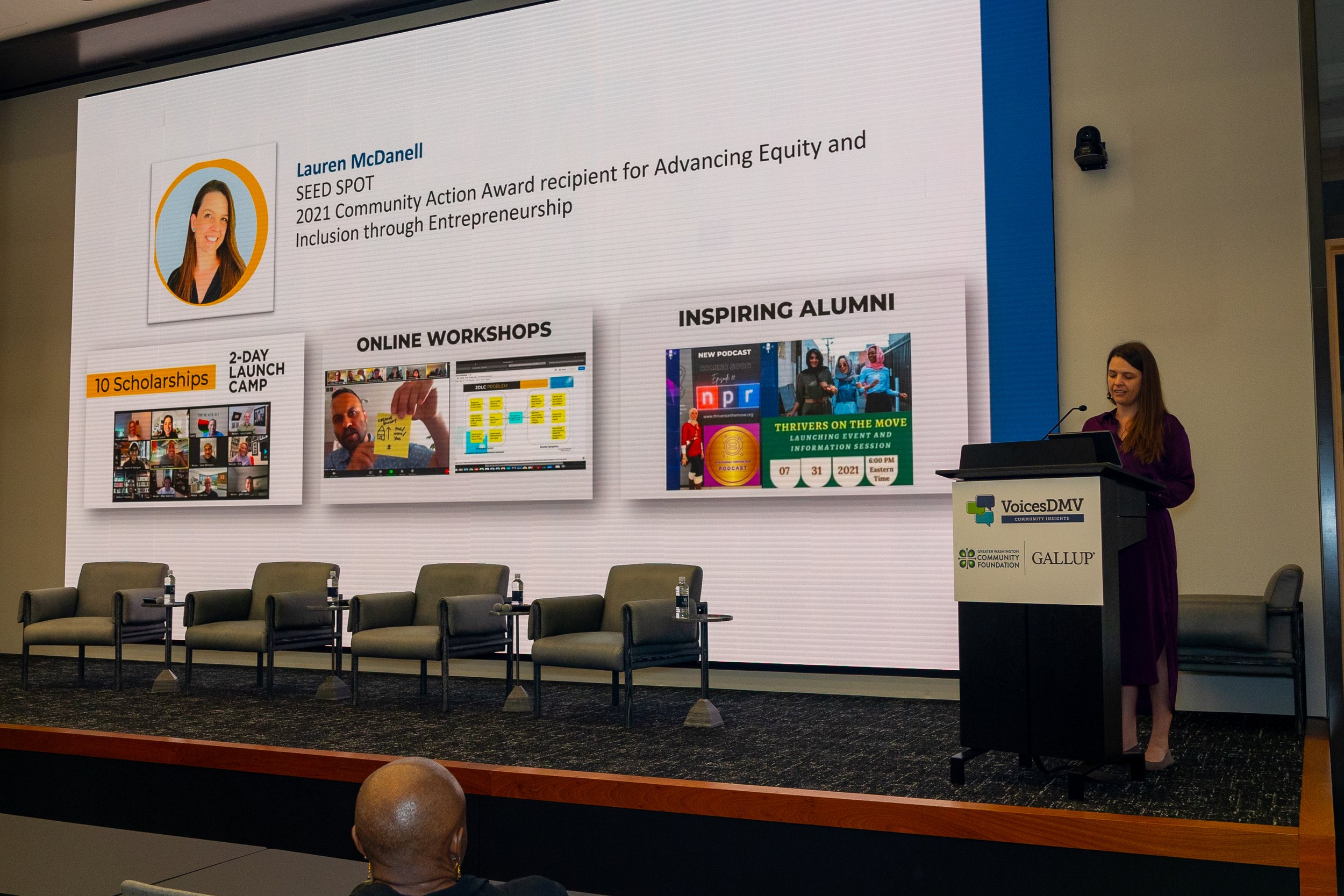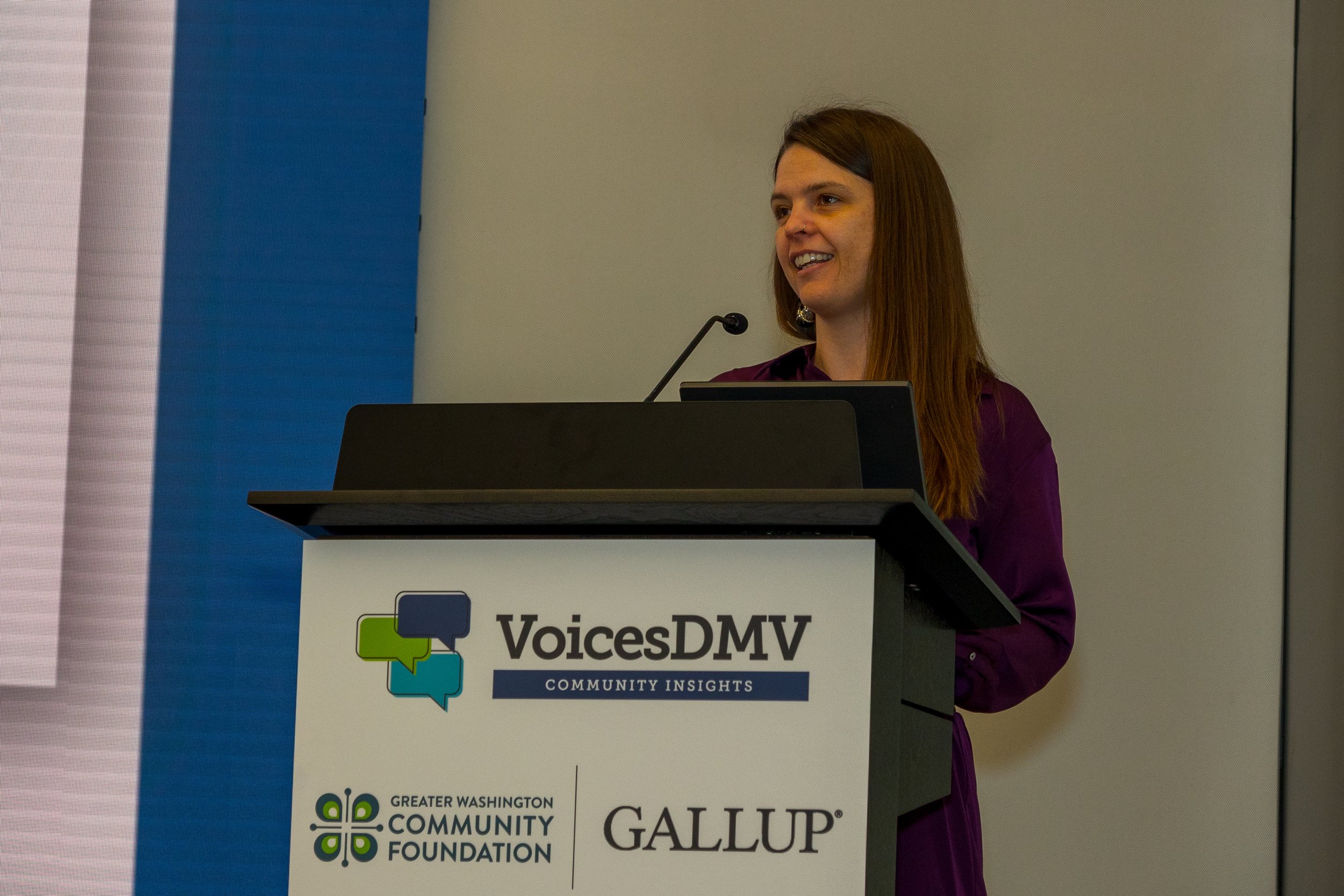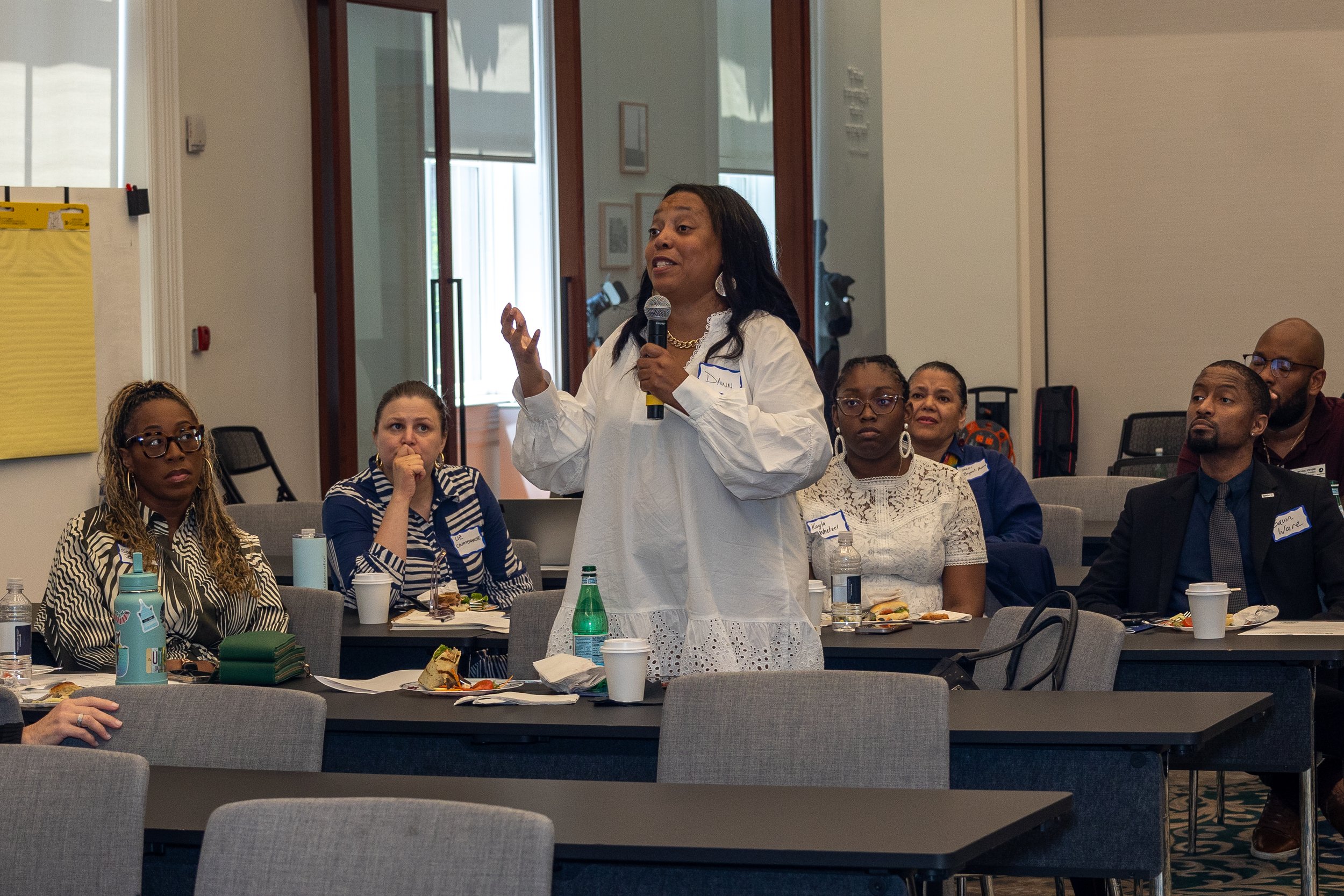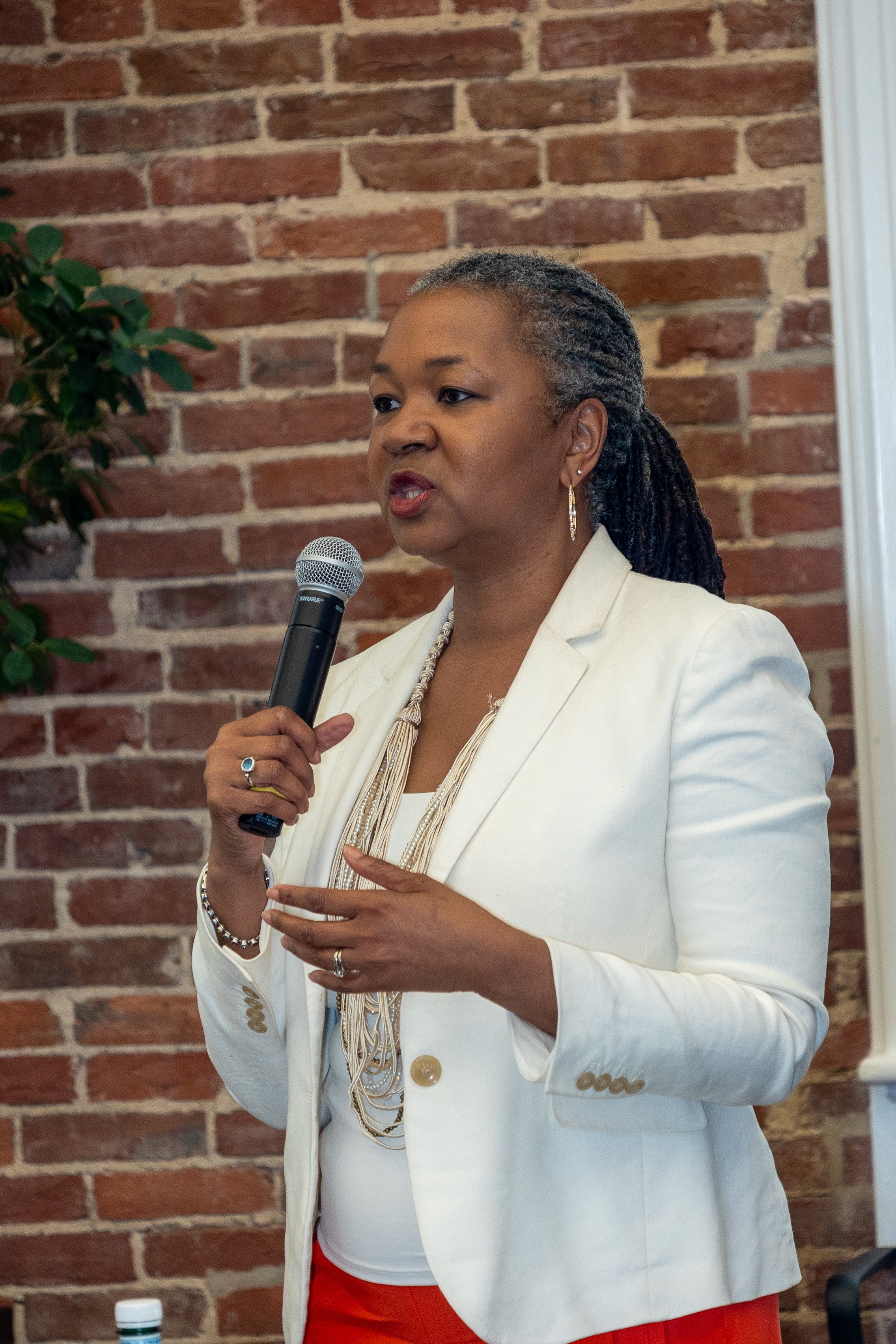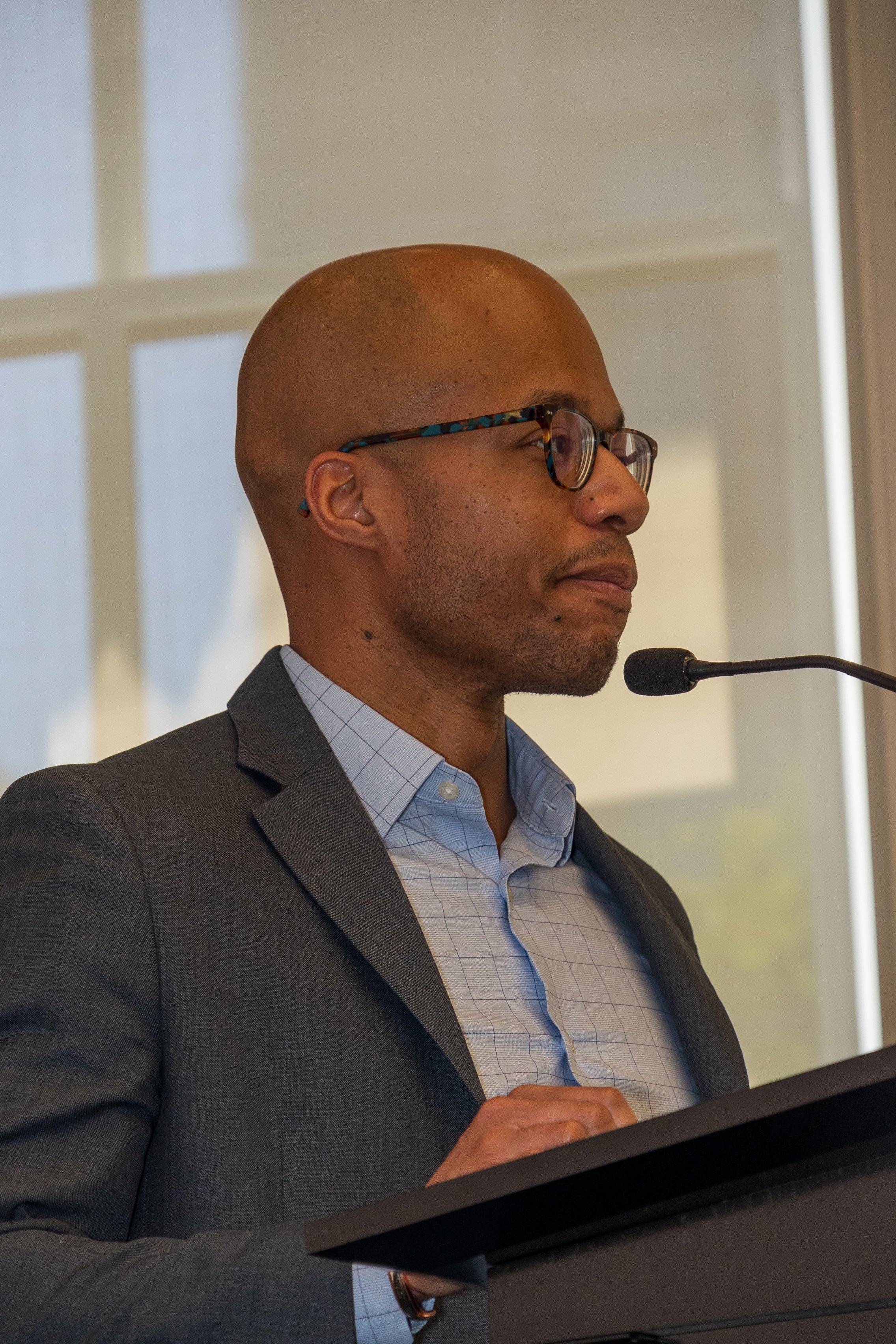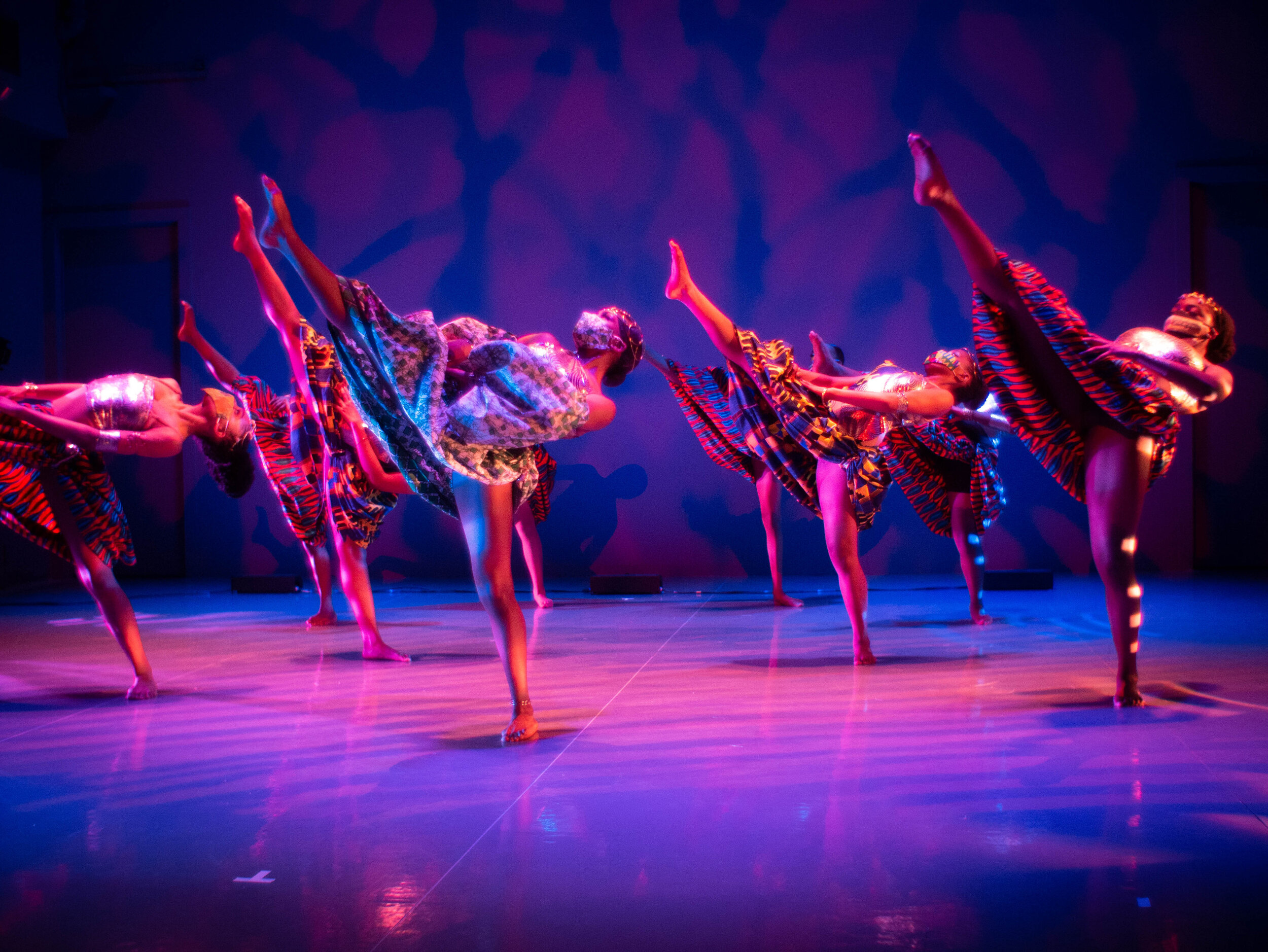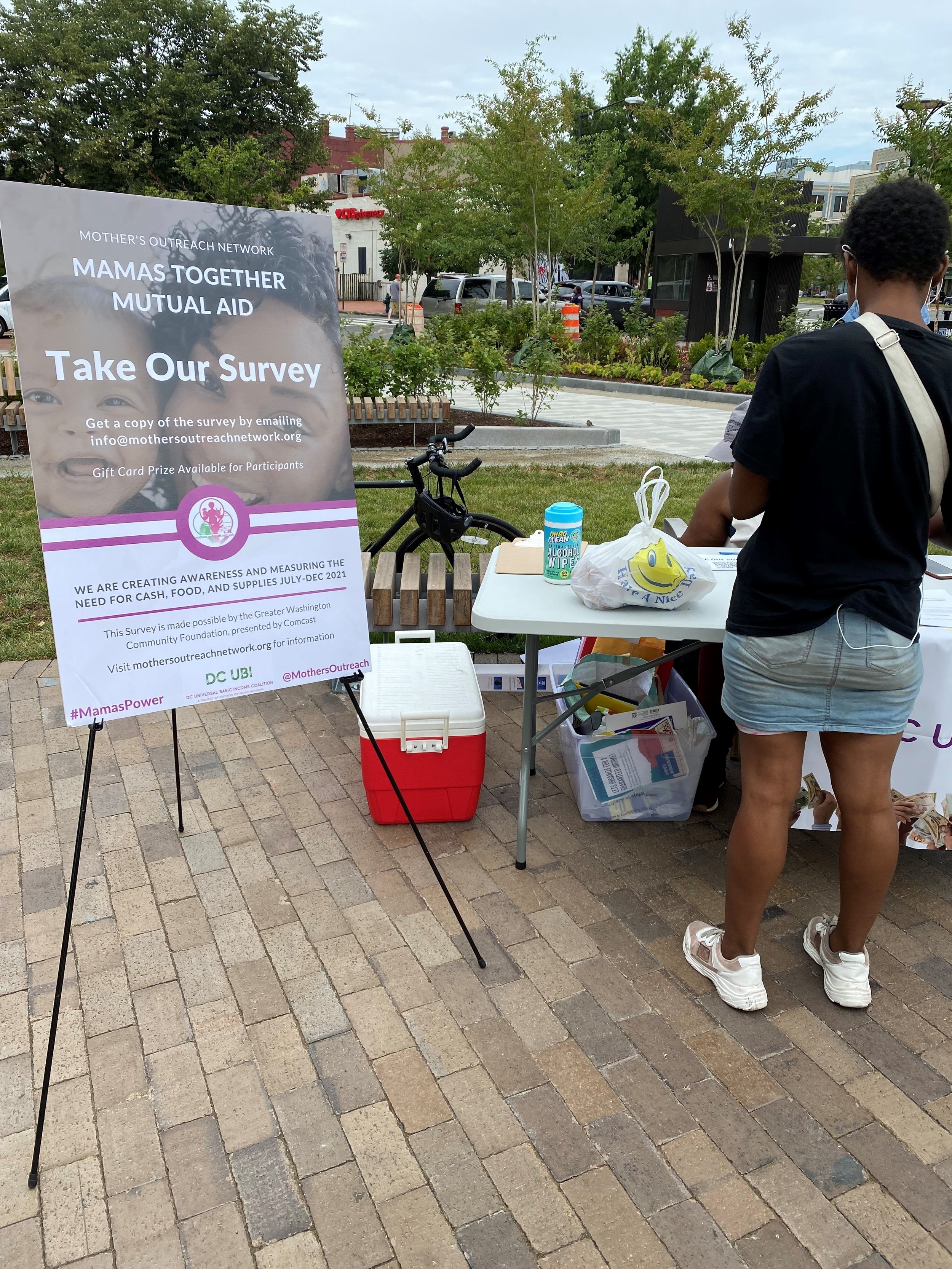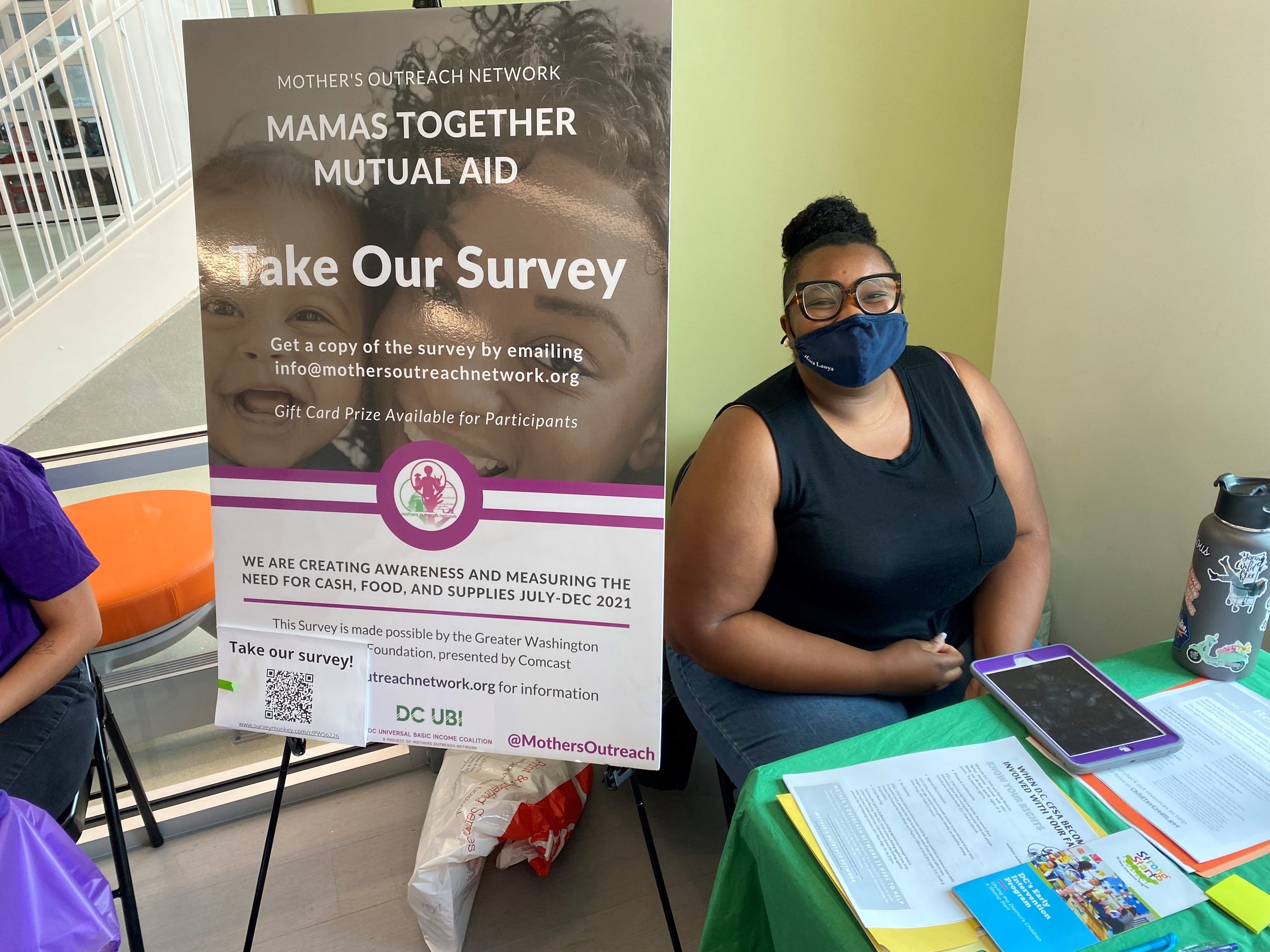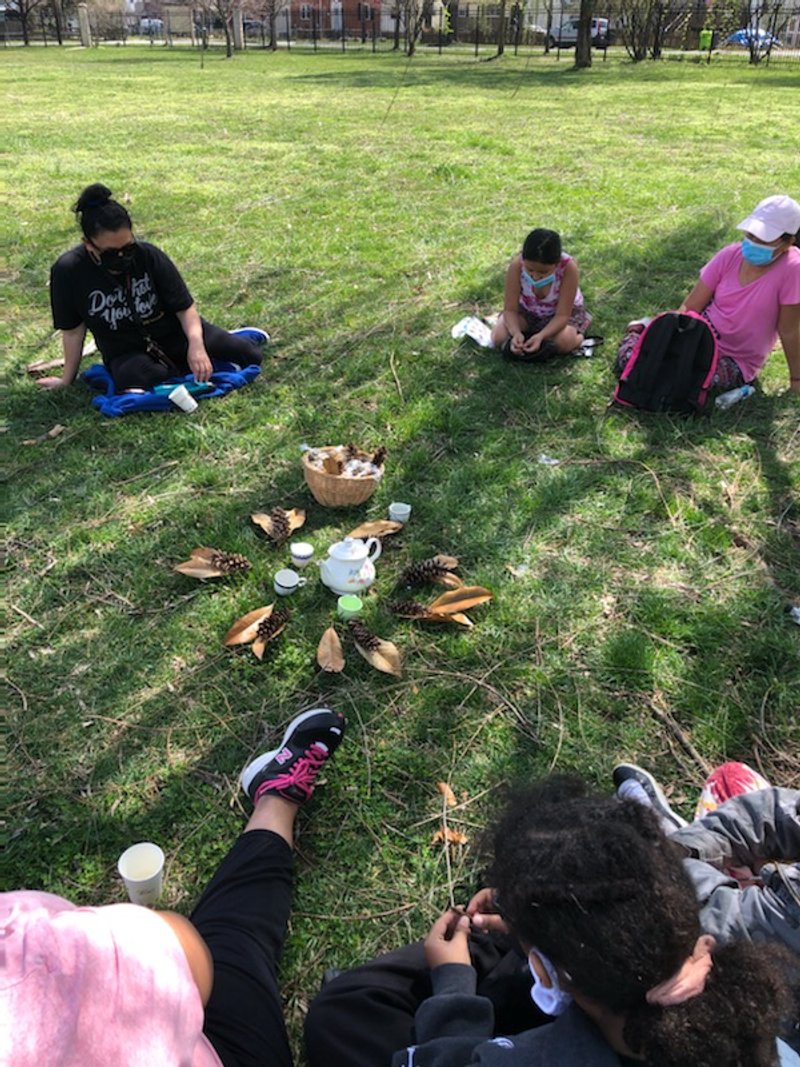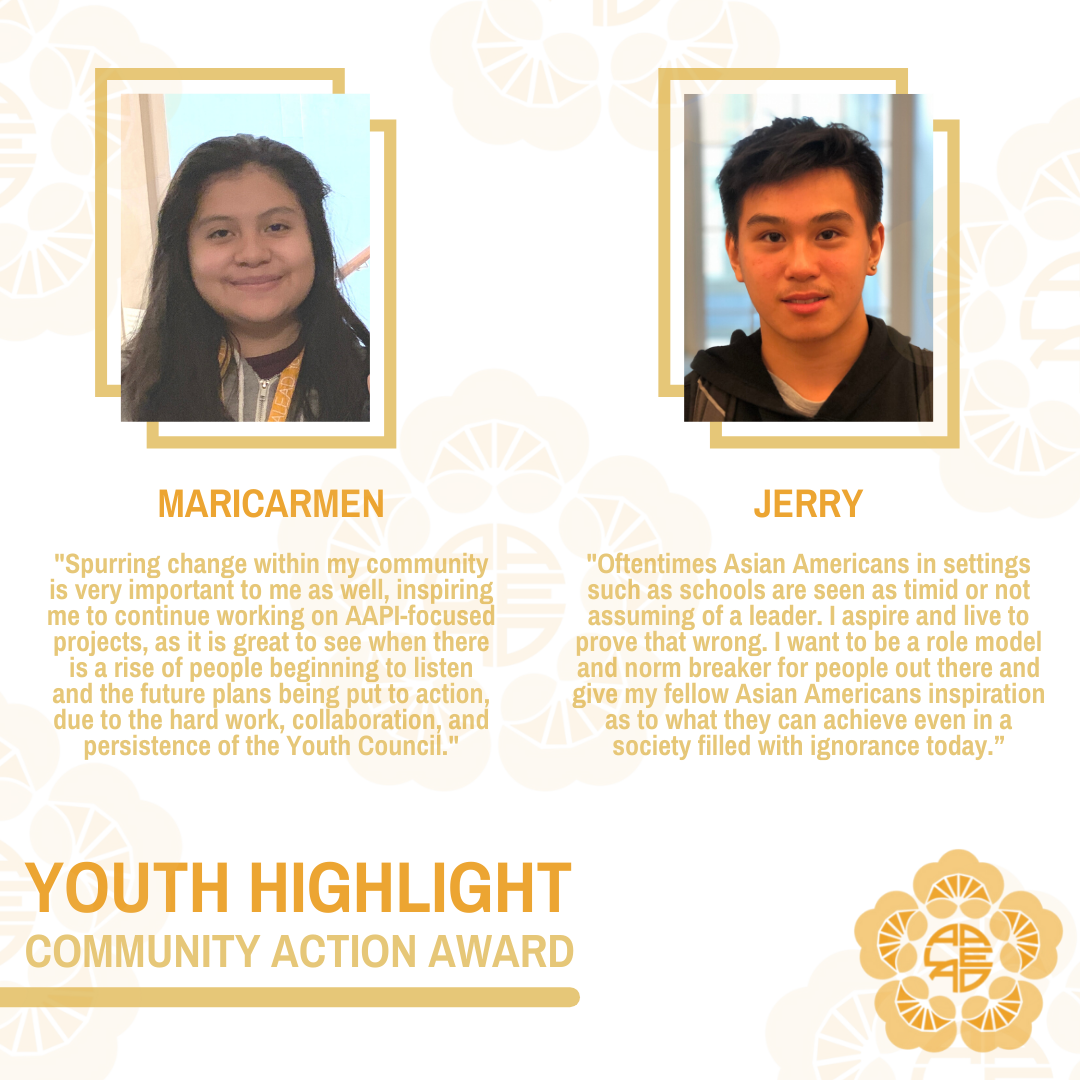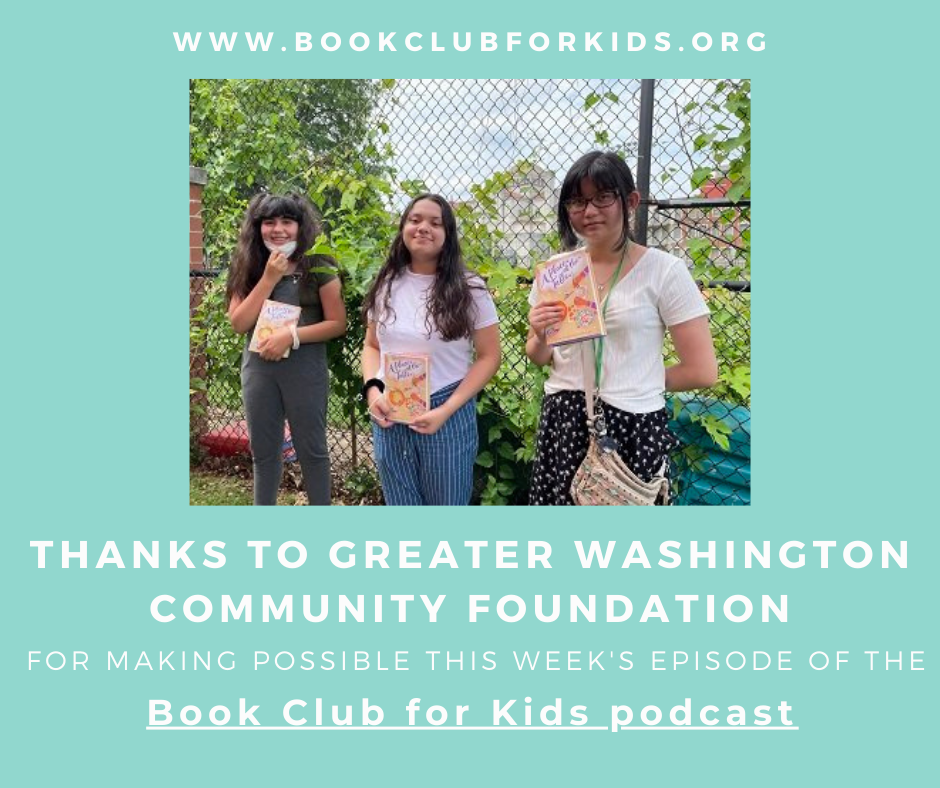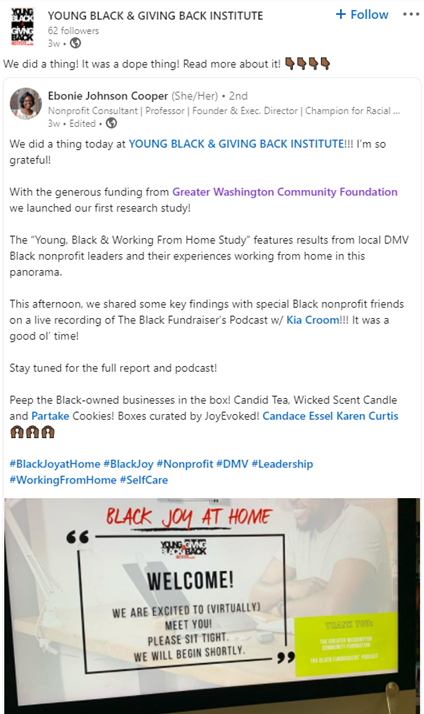A Note from Darius Graham, Managing Director of Community Investment
Our community listening and engagement initiative, VoicesDMV, is designed to help philanthropy, community leaders, policymakers, and others understand the diverse experiences of the people who live and work in the Greater Washington region.
With the release of the VoicesDMV Community Insights Report earlier this year, we created the VoicesDMV Fellowship to identify and support individuals who are deeply rooted in the foundation’s priority neighborhoods. Fellows will facilitate deeper engagement between the foundation and residents in the priority neighborhoods with the ultimate goal of ensuring authentic community voice is at the center of our work.
VoicesDMV Fellows are taking on self-directed projects and will also have the opportunity to participate in the review of grant applications and advise the foundation as we develop, implement, and refine programs and initiatives. Fellows will receive a stipend and serve for at least eight months.
Following an open application process, we selected the following inaugural VoicesDMV Fellows who we’re now delighted to introduce you to.
-
Which community (or communities) will you be working with, as a VoicesDMV Fellow?
Bailey's Crossroads & Culmore
In 2-3 sentences, please briefly share with us about your experience living in/working with the community.
Currently, I work as the full-time Program Manager for a resident-centered Place-Based Initiative (PBI) in the Bailey’s Crossroads & Culmore community led by Kaiser Permanente and George Mason University's College of Public Health. In this role, I engage hundreds of low-income residents and organizations in the community to amplify marginalized voices and accomplish local systems change through a collective impact model. I regularly organize and facilitate convenings of residents and local organizations to create and maintain transformational, rather than transactional, relationships.
In 2-3 sentences, please briefly describe what you hope to accomplish as a VoicesDMV Fellow. What are you most looking forward to?
I am most looking forward to strengthening the Greater Washington Community Foundation's ties with service providers and residents alike. It is incredibly important to not only build trusting relationships with community stakeholders, but also to foster those relationships in a way that promotes greater equity for all. Through my work as a VoicesDMV Fellow, I hope to move the needle forward on addressing the racial wealth gap within the Bailey's Crossroads and Culmore area.
What was your reaction to the 2024 VoicesDMV Community Insights Report? Did it's findings resonate with you and your work? If so, how?
The data collected in the 2024 VoicesDMV Community Insights Report highlights a hard truth: historically disenfranchised communities like Bailey's Crossroads & Culmore have experienced worsening conditions due to the effects of the COVID-19 pandemic. I have seen firsthand the ways that local families have been negatively impacted as they face barriers in accessing essential services and resources. It is more important now than ever before that we amplify and center community voices in our mission of advancing economic mobility in these islands of disadvantage in the DMV.
What excites you about the future for your community?
The residents of Bailey's Crossroads & Culmore are some of the most resilient people I know. I am excited that their voices will direct the economic strategy of the Greater Washington Community Foundation going forward. The residents are the experts on how we can improve quality of life in this community and I am thankful that they are being recognized as such.
-
Which community (or communities) will you be working with, as a VoicesDMV Fellow?
Ward 7 & 8
In 2-3 sentences, please briefly share with us about your experience living in/working with the community.
Living and working in Washington, DC, has allowed me to immerse myself in the diverse and resilient community here. Through my role as the Director of Reentry Services at Changing Perceptions, I’ve witnessed firsthand the strength of individuals who are rebuilding their lives after incarceration and other challenges. This experience has deepened my commitment to supporting personal transformation and community healing.
In 2-3 sentences, please briefly describe what you hope to accomplish as a VoicesDMV Fellow. What are you most looking forward to?
As a VoicesDMV Fellow, I hope to amplify the voices of individuals in the community and advocate for more equitable opportunities in reentry services. I’m looking forward to working with others who care about finding real solutions for these neighborhoods and creating better opportunities for residents to rebuild their lives.
What was your reaction to the 2024 VoicesDMV Community Insights Report? Did it's findings resonate with you and your work? If so, how?
The 2024 VoicesDMV Community Insights Report highlighted many challenges that resonate with my work in reentry services, particularly in Wards 7 and 8. The findings on economic precarity, such as barriers to employment and struggles with housing and basic necessities, strongly reflect the experiences of those I work with daily. It reinforced the importance of addressing systemic barriers that continue to impact marginalized communities. Additionally, the report’s focus on racial disparities and the need for increased collaboration aligns with my efforts to promote equity and create opportunities for those most affected.
What excites you about the future for your community?
I’m excited about the push to tackle long-standing inequalities in Wards 7 and 8. This fellowship allows for a chance to make meaningful changes that help people get back on their feet, find opportunities, and build better futures for themselves and their families.
-
Which community (or communities) will you be working with, as a VoicesDMV Fellow?
Bailey's Crossroads and Route 1 corridor in Northern Virginia
In 2-3 sentences, please briefly share with us about your experience living in/working with the community.
Living in Northern Virginia has given me the opportunity to be part of a vibrant and resourceful community. It has allowed me to experience both the unique challenges and valuable resources within our area. I’ve personally benefited from many local services and programs, and I’m passionate about raising awareness and helping more residents connect with these valuable resources to enhance our community's well-being.
In 2-3 sentences, please briefly describe what you hope to accomplish as a VoicesDMV Fellow. What are you most looking forward to?
As a VoicesDMV Fellow, I hope to deepen my understanding of the unique community health needs and increase relationships with local health resources to effectively communicate and build knowledge of the various services I may not yet be aware of. I am particularly looking forward to collaborating with diverse stakeholders, gaining insights from fellow advocates, and leveraging this experience to implement impactful health initiatives that empower the Bailey's Crossroads and Route 1 corridor in Northern Virginia.
What was your reaction to the 2024 VoicesDMV Community Insights Report? Did it's findings resonate with you and your work? If so, how?
My reaction to the 2024 VoicesDMV Community Insights Report was one of affirmation and clarity. The findings resonated deeply with my experiences in Bailey's Crossroads and the Route 1 corridor, as they highlighted the unique challenges that our community faces. The report provided valuable data and perspectives that helped to qualify my thoughts about the needs in my neighborhood, guiding me on where to focus my efforts. It has reinforced my commitment to enhancing awareness of local health resources and informed my approach to community engagement, ensuring that my initiatives align with the needs of residents. This resource will be instrumental in shaping my work as a VoicesDMV Fellow.
What excites you about the future for your community?
What excites me about the future of my community in Bailey's Crossroads and the Route 1 corridor is the growing commitment to health equity and the collaborative efforts to address long-standing disparities. With more organizations and stakeholders coming together to leverage resources and share knowledge, there is tremendous potential for impactful initiatives that will enhance health literacy and improve access to care. The community’s resilience and openness to engage in meaningful dialogue about its needs inspire hope for lasting change. I am particularly excited about the potential of grassroots movements to empower residents and foster a culture of wellness and support across the area.
-
Which community (or communities) will you be working with, as a VoicesDMV Fellow?
Prince George's County, MD
In 2-3 sentences, please briefly share with us about your experience living in/working with the community.
I recognize my privilege because I work in and support the very community that I live in. My purpose of making a difference starts at home. My work is embedded in my DNA, so I use every opportunity to be cognizant about what the changing needs are of my community. This allows me to be connected to community, while confidently advocating for the ever changing needs of my community.
In 2-3 sentences, please briefly describe what you hope to accomplish as a VoicesDMV Fellow. What are you most looking forward to?
I hope to contribute to the established infrastructure that has been created by the Greater Washington Community Foundation. I hope to be a voice that communicates in a clear, authentic and uncompromising way for my community.
What was your reaction to the 2024 VoicesDMV Community Insights Report? Did it's findings resonate with you and your work? If so, how?
I was not surprised. The findings are on par with what I see and hear daily.
What excites you about the future for your community?
The possibilities... We are in a space where people are starting to imagine and reimagine what a racially equitable and just world can look like. I am excited that I work in a majority melanated community, where the potential to achieve this is not just an idea but is a possibility.













